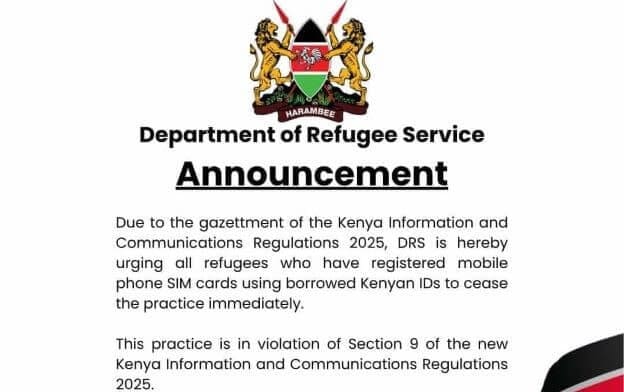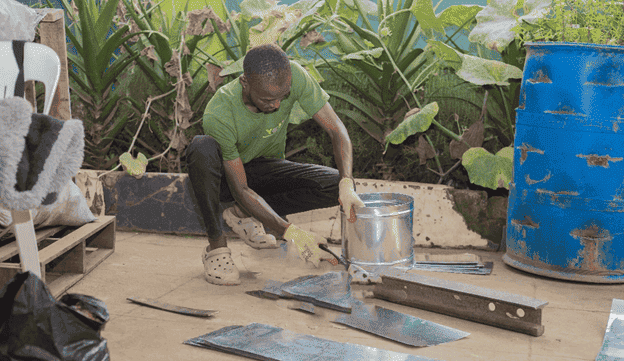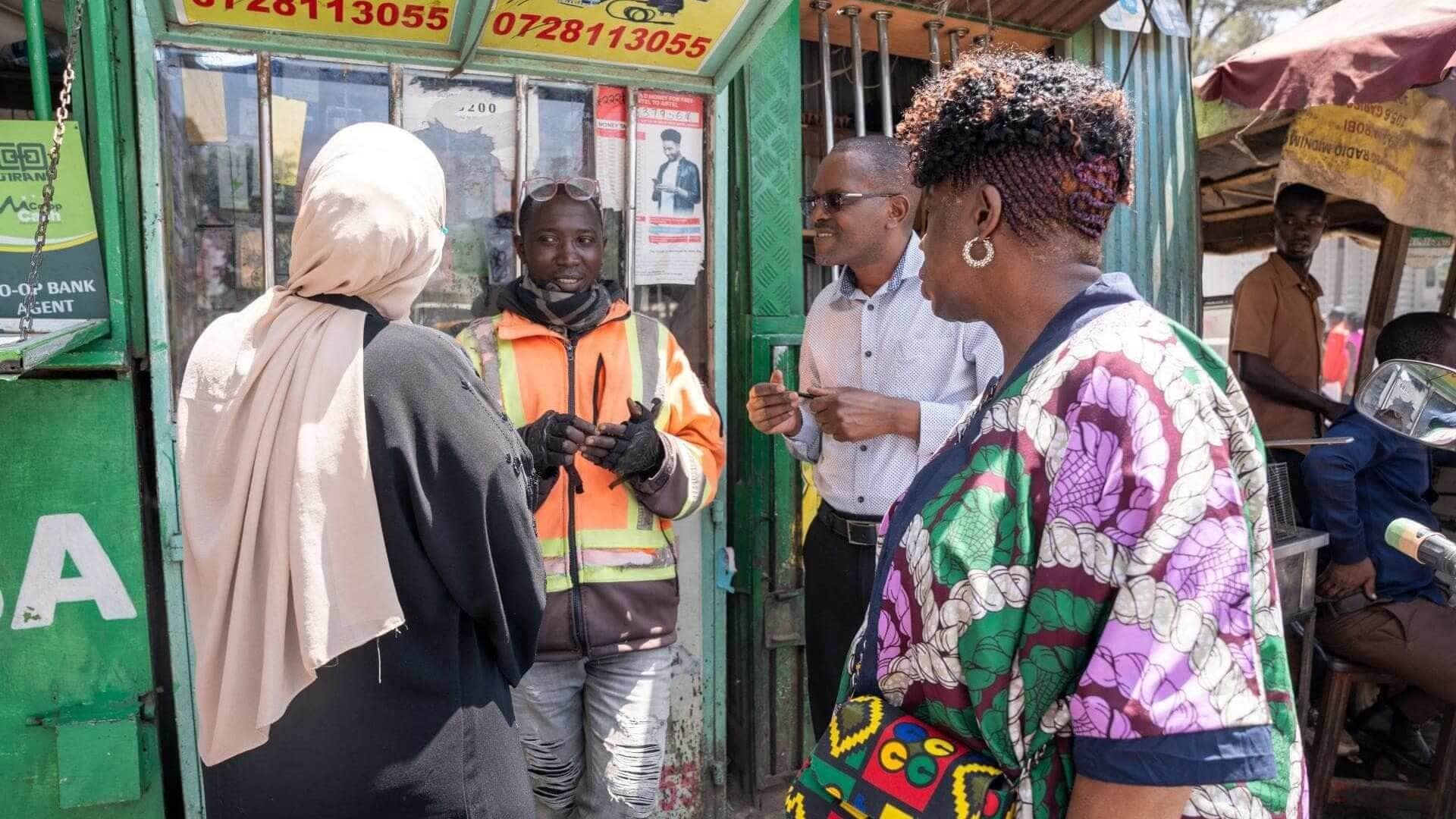Re:BUiLD Launches Wave 2 RCT Intervention
Re:BUiLD Launches Wave 2 RCT Intervention
Re:BUiLD Launches Wave 2 RCT Intervention
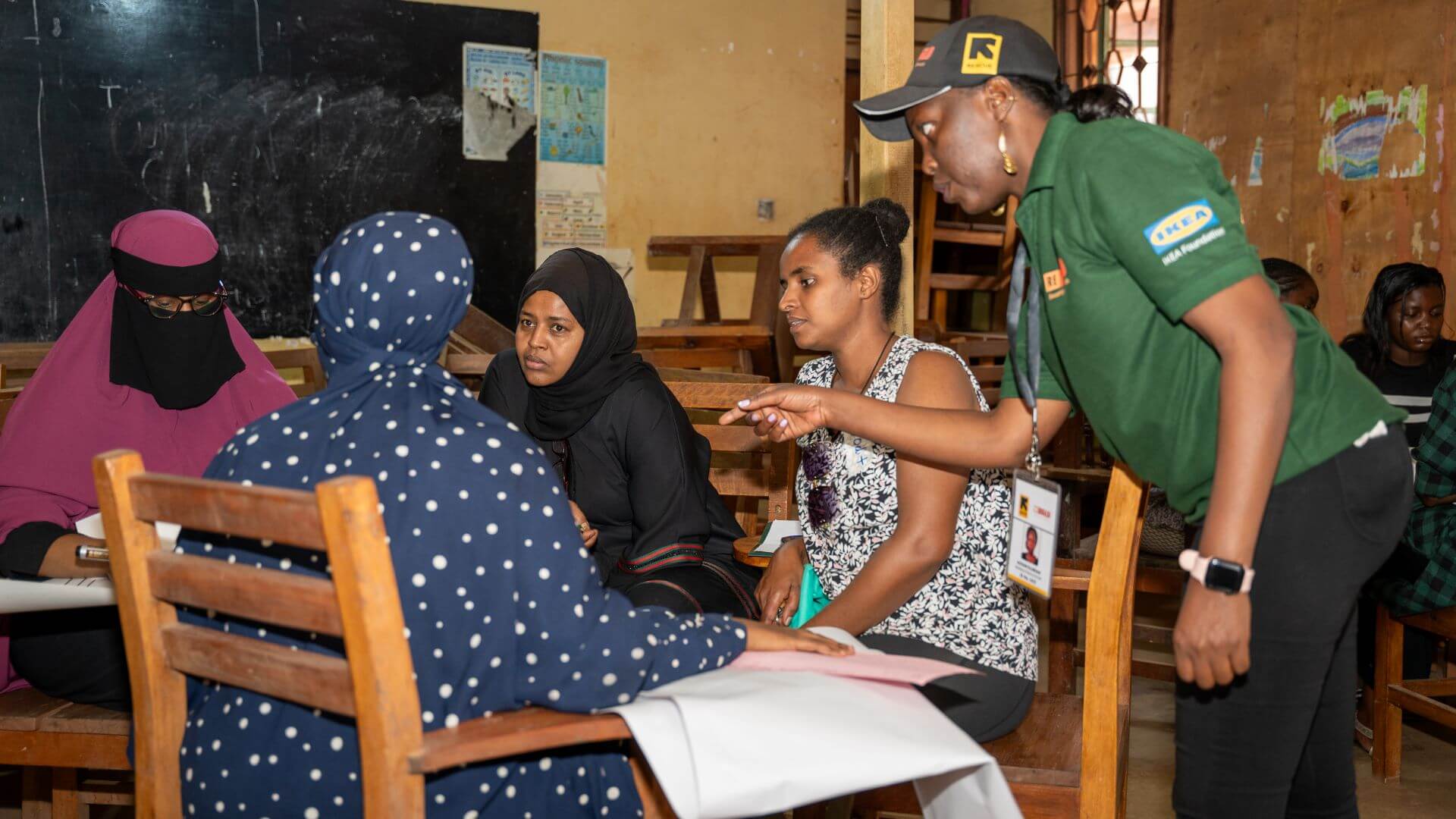
10 October 2024, Kampala. A research facilitator interacts with entrepreneur participants during one of the meet-up sessions of the RCT wave 2. (PHOTO: Nathan Tibaku/TheIRC)
The International Rescue Committee’s Re:BUiLD program in partnership with The IKEA Foundation, Georgetown University, Stanford University’s Immigration Policy Lab (IPL) and Innovations for Poverty Action (IPA) has launched a second wave (Wave 2) of Randomized Controlled Trial (RCT) in Nairobi and Kampala. The study, which will include 8,000 individuals (4,000 in each city), aims to connect entrepreneurs from refugee and host communities through business networks to improve social cohesion, self-employment, and business outcomes.
Urban refugee entrepreneurs face significant challenges and the study aims to address some of these, for example, the lack of access to social and business networks. The study seeks to directly address this challenge by creating opportunities for refugees and host community members to build both “strong” and “weak” network ties with other entrepreneurs. Fostering these connections can help refugees and host community members overcome the disadvantages they face due to limited networks, enabling them to establish and sustain businesses, access information and resources, and better integrate into the local market. The study will tackle refugee exclusion from informal economies by facilitating interactions and relationship-building between refugee and host entrepreneurs through structured business groups.
"Although refugees generally face significant challenges integrating into host country labor markets – typically performing worse than locals or other migrants... urban markets in Kampala and Nairobi are particularly challenging because refugees lack the personal and professional networks to establish and sustain micro-enterprises or engage in entrepreneurial activities," said David Martin Musiime, Re:BUiLD’s Research Coordinator. He added, "These local markets rely heavily on interpersonal relationships and trust and are characterized by various forms of informal exchange, meaning that economic activities are deeply embedded in – and shaped by – local networks, which refugees often struggle to access.”
Recognizing that business and social networks can significantly contribute to business success, the study also seeks to provide refugees and hosts with the tools and connections they need to thrive as entrepreneurs. By facilitating networking and collaboration, the study aims to equip refugees with resources and support systems that can improve their chances of business success, promoting their economic self-reliance and integration. Social networks can play a crucial role in building social cohesion between refugees and host communities, the study intentionally designs interventions to bring together entrepreneurs. This approach aims to break down barriers, foster understanding, and promote social cohesion, ultimately leading to a more inclusive and supportive environment for refugees in their new urban settings.
The intervention
The study's intervention consists of two main components, business network groups and business grants. The business groups, designed to facilitate relationship-building and networking, are the core element of the intervention and aim to address the challenges of network access and exclusion from informal economies. All participants, including those in the control groups, receive a business grant of approximately 435 USD. This grant is intended to provide a financial boost to the participants’ entrepreneurial activities, complementing the networking opportunities offered through the business groups. The business grant is paid out after week 7 of the intervention for all groups except for the “pure control group,” which receives the same business grant after the endline.
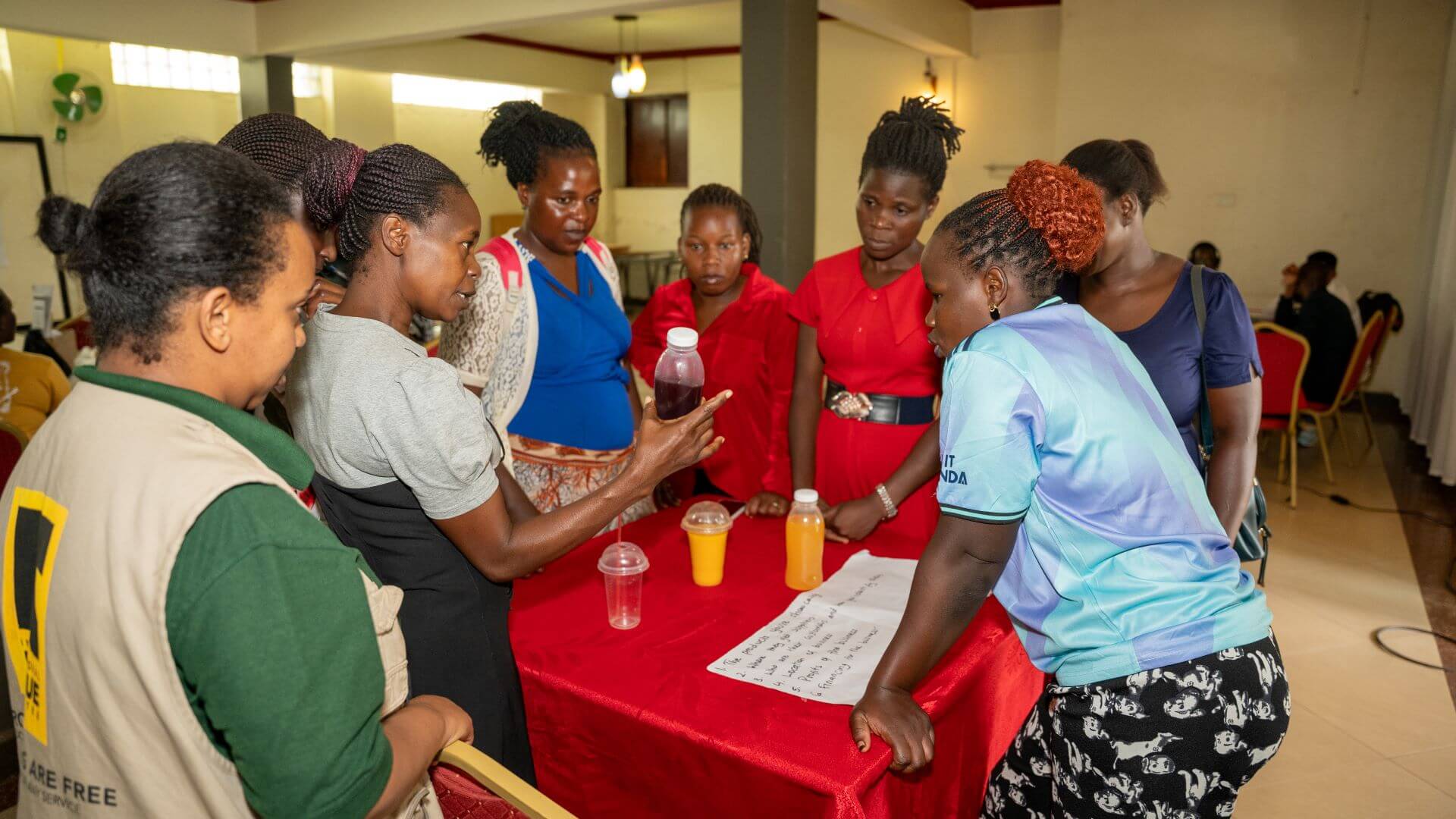
10 October 2024, Kampala. An entrepreneur participant presents juice samples from her business to other entrepreneurs during an RCT Wave 2 business fair session (PHOTO: Nathan Tibaku/TheIRC)
The study aims to evaluate the impact of both the business network groups and the business grants on the economic and social outcomes of the participants. This evaluation will help determine the effectiveness of these interventions in addressing the challenges faced by urban refugees.
You can read more about the study in the public registry here.
